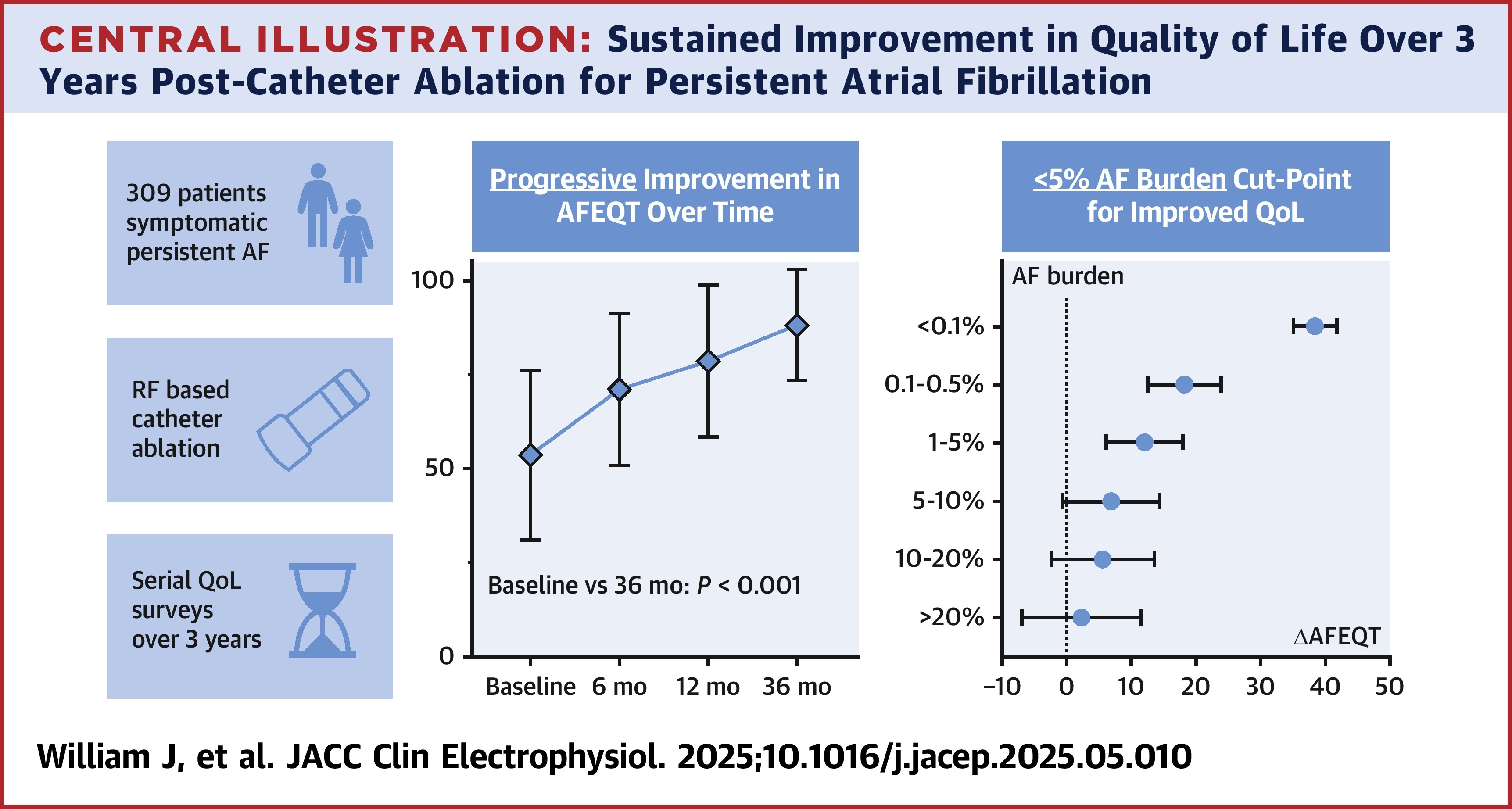CAPLA: Long-Term QOL Improvement With CA For Persistent AFib
Quality of life (QOL) at three years significantly improved following catheter ablation (CA) for persistent atrial fibrillation (PsAFib), according to a secondary analysis of patients in the CAPLA clinical trial published in JACC: Clinical Electrophysiology.
The multicenter international trial ran from 2018 to 2021 and randomized 338 patients with PsAFib to receive CA of pulmonary vein isolation alone or in combination with posterior wall isolation. They were 66 years old and 77% were men. QOL was evaluated using the Atrial Fibrillation Effect on QualiTy-of-Life (AFEQT) questionnaire before the CA procedure and then repeated at six months, one year and three years post ablation. AFib burden was calculated using intensive rhythm monitoring. QOL data were complete for 92% of patients.
Results showed that the mean AFEQT score increased from 53.7 at baseline to 78.7 at 12 months and at three years it was 88.4 (p<0.001). Researchers observed significant improvements across all AFEQT subdomains, including symptoms, activity limitations and treatment concerns. Of note, there was a significant negative correlation between AFib burden and QOL at three years, with AFib burden >5% associated with no significant improvement in QOL. The benefits were seen across demographic and clinical subgroups.

Jeremy William, MBBS, et al., address the ongoing question of whether the benefits of CA could be partially attributed to a placebo effect, writing that the "sustained and progressive nature of QOL improvement over [three] years following [AFib] ablation presents a compelling argument against a placebo effect."
Clinical Topics: Arrhythmias and Clinical EP, SCD/Ventricular Arrhythmias, Atrial Fibrillation/Supraventricular Arrhythmias
Keywords: Atrial Fibrillation, Quality of Life, Catheter Ablation
< Back to Listings
